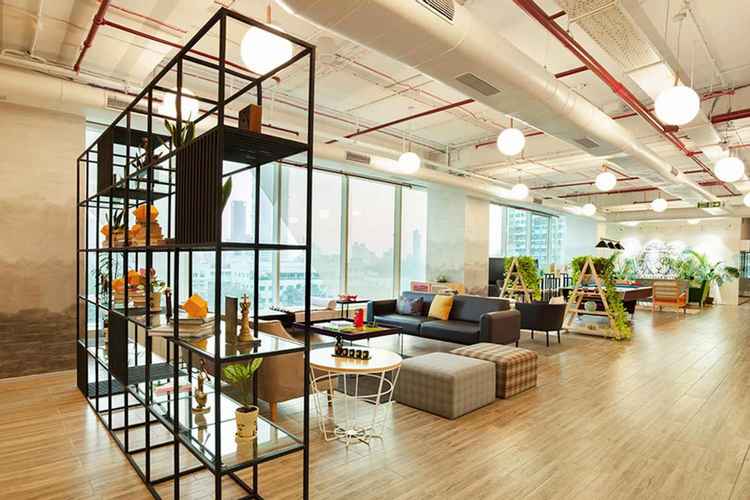Introduction:
In recent years, coworking spaces have revolutionized the way people work and collaborate. With their flexible environments and vibrant communities, these shared workspaces have become increasingly popular among freelancers, startups, and even established companies. As we look ahead, it’s essential to explore the future of coworking and the trends and predictions that will shape this dynamic industry.
Hybrid Work Models:
One of the most significant trends in the future of coworking is the rise of hybrid work models. The COVID-19 pandemic has accelerated the adoption of remote work, and companies have realized the benefits of flexible arrangements. As a result, coworking spaces will cater to both remote workers and employees who prefer a mix of office and remote work. These spaces will provide the infrastructure and amenities necessary for seamless collaboration, whether individuals work from home, the office, or a coworking space.
Industry-Specific Coworking Spaces:
As the demand for specialized knowledge and networking increases, we can expect to see industry-specific coworking spaces. These spaces will bring together professionals from specific sectors or industries, fostering collaboration, innovation, and expertise sharing. From tech-focused coworking hubs to spaces dedicated to creative industries or healthcare professionals, industry-specific spaces will offer tailored resources and networking opportunities for individuals within those fields.
Wellness and Well-being:
The future of coworking will prioritize wellness and well-being. Coworking operators will design spaces that promote physical and mental health. Expect to see more fitness facilities, meditation rooms, and wellness programs incorporated into coworking spaces. Additionally, the integration of natural elements, such as greenery and natural lighting, will create a more rejuvenating and productive environment for members.
Technology Integration:
Technology will continue to play a crucial role in shaping the future of coworking. From smart access control systems to advanced meeting room booking software, technology will enhance the user experience and streamline operations. Coworking spaces will integrate Internet of Things (IoT) devices to create smart environments that offer personalized experiences, seamless connectivity, and data-driven insights.
Sustainable and Eco-Friendly Practices:
With increasing awareness of climate change and sustainability, coworking spaces of the future will prioritize eco-friendly practices. Expect to see the integration of renewable energy sources, energy-efficient designs, waste reduction measures, and recycling programs. Sustainable initiatives will not only align with environmental values but also attract environmentally conscious individuals and companies.
Flexible Membership Models:
The future of coworking will bring more flexible membership models tailored to the diverse needs of users. Coworking spaces will offer a range of options, including hourly passes, part-time memberships, and customized plans for teams of different sizes. This flexibility will cater to freelancers, remote workers, and companies seeking short-term or project-based collaborations.
Global Network and Collaboration:
Coworking spaces will increasingly foster a sense of global community and collaboration. Members will have access to networks and communities across different locations, enabling them to connect with like-minded professionals worldwide. This global reach will facilitate collaboration, knowledge sharing, and business opportunities on a global scale.
Emphasis on Privacy and Customization:
In response to the evolving needs of members, future coworking spaces will provide options for private offices and dedicated workstations. This shift will cater to individuals and teams requiring a higher level of privacy or a personalized space to reflect their brand and work style. Customizable workspaces, with adjustable furniture and modular designs, will allow users to create their ideal environment.
Artificial Intelligence and Automation:
As technology advances, coworking spaces will incorporate artificial intelligence (AI) and automation to enhance efficiency and user experience. AI-powered virtual assistants may assist with tasks such as booking meeting rooms, managing memberships, and providing personalized recommendations. Automation will streamline administrative processes, freeing up time for community managers to focus on fostering connections and organizing events.
Collaboration Spaces and Innovation Labs:
To encourage creativity and collaboration, future coworking spaces will allocate dedicated areas as collaboration zones or innovation labs. These spaces will be designed to facilitate brainstorming, ideation, and problem-solving sessions. Equipped with whiteboards, brainstorming tools, and interactive technologies, these zones will promote a culture of innovation and enable members to collaborate on projects and explore new ideas.
Event Spaces and Educational Programs:
Coworking spaces will evolve into vibrant hubs of learning and professional development. They will offer event spaces for workshops, seminars, and networking events. Additionally, coworking operators may curate educational programs, mentorship opportunities, and skill-building sessions to support members in their personal and professional growth.
Integration of Augmented and Virtual Reality:
With the rise of augmented reality (AR) and virtual reality (VR), coworking spaces will explore ways to integrate these technologies into their offerings. Members may have access to virtual meeting rooms or virtual collaboration spaces, enabling remote teams to work together seamlessly. AR may enhance the physical workspace by providing interactive information, wayfinding assistance, and immersive experiences.
Data Analytics and Member Insights:
Coworking spaces will harness the power of data analytics to gain insights into member preferences, behavior, and utilization patterns. This data-driven approach will enable operators to optimize space allocation, tailor amenities, and create personalized experiences for members. By understanding member needs and preferences, coworking spaces can continuously improve their offerings and enhance member satisfaction.
Partnerships with Corporations and Institutions:
As the coworking industry matures, we can expect to see increased partnerships between coworking operators, corporations, and educational institutions. These collaborations may involve providing exclusive coworking spaces for remote employees of partner companies or establishing innovation hubs within academic institutions. Such partnerships will foster knowledge exchange, talent acquisition, and industry-academia collaboration.
“Ready to experience the future of work at Flexo? Discover our innovative coworking space designed to boost productivity, collaboration, and well-being”
You may also like
-
Automatic Fruit Wine Bottling Line for Small Wineries: A Complete Guide
-
How Does Plywood HSN Code Decide the GST Rate for Traders and Manufacturers?
-
POS Terminal Type: Which Is Best for Your Business?
-
How to Choose Fixed and Portable Gas Monitors for Industrial Gas Detection?
-
Simplifying Trademark Registration in Hong Kong: What Businesses Need to Know

